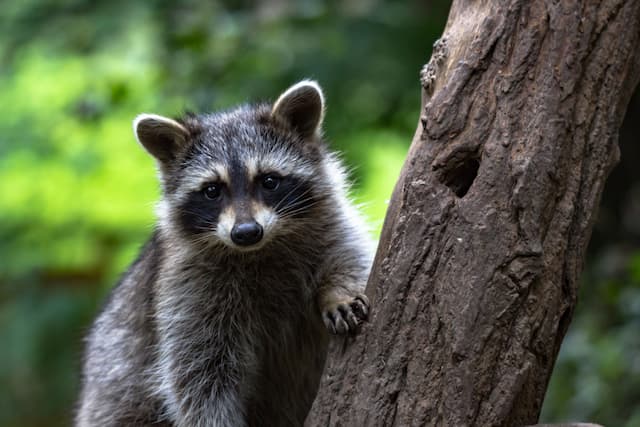How to Protect Your Garden: How to Keep Raccoons Out of Your Plants
Yes, the raccoon is that sneaky thief of the night. Raccoons are interesting to look at from a distance, but when they come into your garden, they can be the worst thing that could happen. These smart animals can quickly turn the plants you’ve been taking good care of into a midnight feast. Here are some important techniques and tips to keep raccoons out of your garden and protect it.
Understanding How Raccoons Act
Before talking about ways to keep raccoons away, it’s helpful to know how they act. Raccoons eat a variety of foods and grab food when they can. They have a strong sense of smell and can be drawn to many tasty things in the garden, from fruits and veggies to bugs and small rodents. Gardens are tempting targets because they have lots of tasty food.
-
Keep the trash and compost bins safe.
Rats and skunks like easy food sources, and your trash or compost bins can be a spread where they can eat as much as they want. Make sure that the lids on these containers fit tightly and that they are closed firmly. It’s amazing how well raccoons can open lids, so it’s worth buying bins that are made to keep them out.
-
Put in lights that turn on when they sense motion.
Animals like raccoons are active at night and like to hunt when it is dark. Raccoons that come into your yard at night may be scared away by motion-activated lights. Plan where to put these lights so that they shine on places where raccoons are likely to enter.
-
Put up fences
One of the best ways to keep people away is with a fence. You could use galvanized steel mesh or wire fencing to keep raccoons out of your yard. Raccoons have a hard time moving this material because it is strong. To keep rats from digging under the fence, it needs to be buried at least a foot deep.
-
Plant barrier plants that are prickly or smelly
Raccoons don’t like plants with smelly or prickly leaves. You could use them as a natural fence around your yard. Roses, holly, and marigolds are some examples. Raccoons stay away from these kinds of plants, so they can be used as a barrier.
-
Use smell and taste blockers
Rats and opossums won’t want to eat your plants if they smell or taste something bad. You can buy sprays that keep bugs away, or you can make your own with things like vinegar, garlic, or hot peppers. Put these poisons right on your plants to keep them away.
-
Freaky Tricks
Raccoons may be less likely to come back to your yard if you have motion-activated sprinklers or machines that make noise. Over time, they might connect your garden with bad memories and look for food somewhere else.
-
Quickly gather fruits and vegetables
Raccoons are more likely to eat fruits and veggies that are too ripe or starting to rot. Quickly harvest your crops to make them less appealing to these masked thieves. Check your garden often for things that have dropped or been damaged.
-
Keep compost piles safe
It is known that raccoons love to dig through garbage piles. Use a tight-sealing trash bin that raccoons can’t get into. Animals like raccoons may be drawn to your trash if you put meat or dairy products in it.
-
Keep your garden clean
Raccoons are less likely to come into a well-kept yard. Clear out your yard of any trash that could be used as a place to hide or stay safe. If you don’t make your yard comfortable for raccoons, they are less likely to come there.
In conclusion, keeping raccoons out of your garden takes a mix of methods, such as using secure containers, scare tactics, and the plants you choose. By knowing how raccoons act and taking these steps, you can enjoy the beauty of your garden without having to worry about raccoons getting in the way. With hard work and drive, you can make a garden that raccoons can’t get into and that still does well in spite of them.
At Raccoon Control Bolton, We have professional and insured pest control specialists who have the tools available to take care of your break-in. Our raccoon service is backed up with a 2-year service warranty. If raccoons return, we will too at no additional cost. Call 647-578-7949
